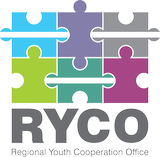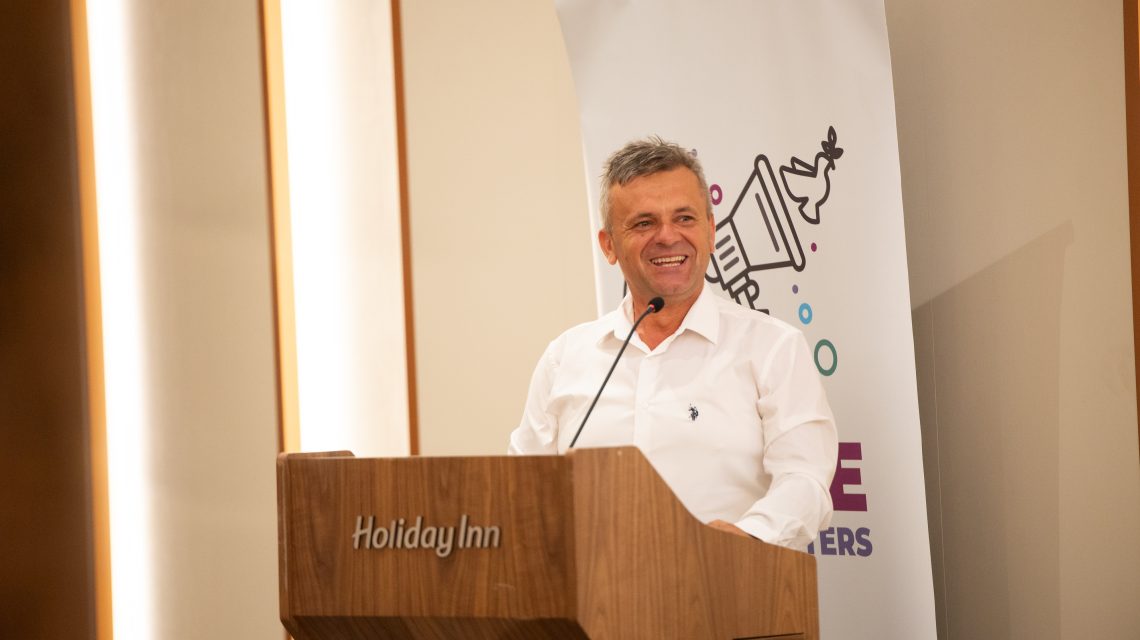30 Years of Peacebuilding: A Journey of Courage, Persistence, and Hope
This 21st of September, as we celebrate International Peace Day, I also mark 30 years of my personal and professional engagement in peacebuilding, reconciliation, and human rights.
It all began during my law studies in Skopje, where I became a human rights and youth activist. From the start, I held a vision that only open hearts and minds would lead us all to prosperity. My work in human rights and peacebuilding has continuously shaped this vision. Over time, I realized that by refusing to succumb to the fear imposed on me as a young activist, I freed myself from the stereotypes, prejudices, and enemy images of “the other.”
Over the years, I’ve done what once seemed impossible in the name of peace. Looking back, there are things I’m not sure I’d have the courage to do again, but in those moments, I felt a deep sense of purpose. There were highs, times of great motivation as I worked to build interethnic and interreligious relations. But there were also lows—moments of deep despair when the results seemed invisible, when the path ahead seemed too hard to follow.
There were moments when I couldn’t explain to others why I was so dedicated to peace and reconciliation. The people around me struggled to grasp the need for peace, especially in times of harsh realities. Sometimes, I was misunderstood—seen through the narrow lens of ethnicity or as someone involved in international politics. My dedication to peace and reconciliation made me seem illogical to some, even a traitor. Yet, the strength of my vision grew with each challenge. I confronted extremist ideologies that couldn’t understand that my work was for the good of all, even for them.
Courage is essential in peacebuilding, but persistence is just as vital. Evil always tries to steer us away from the path of tolerance and understanding. The work is dangerous in times of crisis, in places where understanding is scarce. I’ve come to believe that peace requires a bit of naivety—without it, I wouldn’t have done half of the things I did. Love for humanity was implanted deep in my soul, and it carried me through.
I owe much to the culture of my family, where I was raised not to see others through the narrow lenses of religion, ethnicity, social status, or gender. I am deeply grateful to my parents and ancestors for cultivating such values. This upbringing allowed me to form friendships with people from all walks of life. As young people, we found joy in our shared humanity, not our differences.
As a law student, I was active in many student institutions and passionate about volunteering. I wasn’t concerned with material wealth, which allowed me to focus entirely on my peacebuilding efforts. Over the years, I grew from a volunteer to a trainer, a mediator, and eventually the leader of several prestigious peacebuilding organizations. Now, 30 years later, I am more discerning about how peace-related activities should be implemented. I am never fully satisfied and always expect more.
Peacebuilding is a creative field, full of passion and energy. For me, it is not just work—it is my love, the elixir of life, joy, and happiness.
Throughout my journey, I’ve contributed to many political and social processes in my local environment and the wider Western Balkans region. I’ve been part of conflicts—not as someone aligned with one side or the other but as the third party, urging both sides to understand that fighting isn’t worth it. I risked a lot to build bridges between those who couldn’t see past their divisions.
One of the hardest aspects of this work was collaborating with people who didn’t believe in peace. Many were driven by ethnocentric views, prejudices, and hatred. I had to patiently digest their words and try to show them—often subtly—the power of tolerance and understanding. Some changed, and I remain friends with them today. Others continued down the path of extremism.
As a trainer, mediator, and promoter of peace, I’ve had the privilege of meeting thousands of young people, politicians, businesspeople, and journalists. My heart swells with joy when I see them reflecting the lessons they’ve learned from me. Some have taken different paths, but I trust that, in time, they will see the light.
Working with like-minded individuals is a blessing, but the circle of professionals in this field is small. Many have given up, but I won’t. Even if I’m not directly involved in peacebuilding, it will remain a part of my soul, my family, and my culture.
In my time at RYCO, I had the opportunity to apply everything I had learned throughout my peacebuilding journey. The myriad of tools I had gathered over the years not only made me a better leader but also helped me navigate a tumultuous period of institutional reform. While my understanding of legal and financial matters, along with my leadership and managerial skills, was essential, it was my deep cultural sensitivity that truly made the difference. Without it, I might have faltered from the start.
I never viewed anyone through ethnic, religious, or political lenses, nor did I see anyone as an enemy in the course of my duties. In such a diverse working environment, my strongest asset was my unwavering focus on the shared vision. I also wasn’t afraid to ask for help when I needed it, recognizing that collaboration was key to success.
Creating a long-term perspective in a newly established organization like RYCO required visible results that could unite everyone around a common goal. Without embedding a peace-centered approach into this vision, we might have lost our way. Instead, we collectively built a brighter future for RYCO and, by extension, for the youth of the Western Balkans. None of this would have been possible without the support of the dedicated staff and the cooperation of all six governments, even in such a politically tense environment.
Peace is not just my work—it’s who I am !
Albert Hani, RYCO Secretary General



